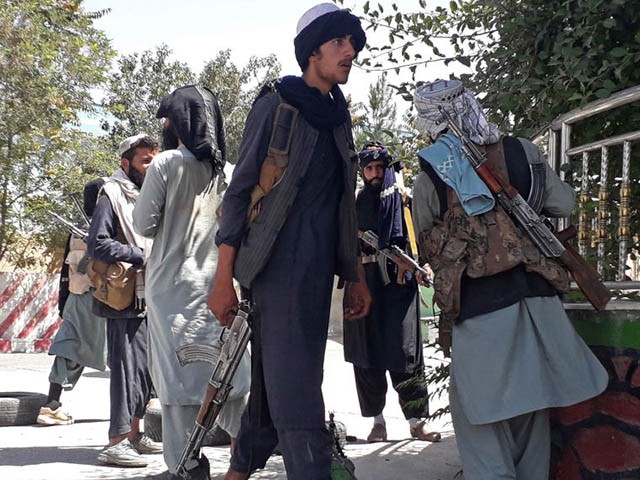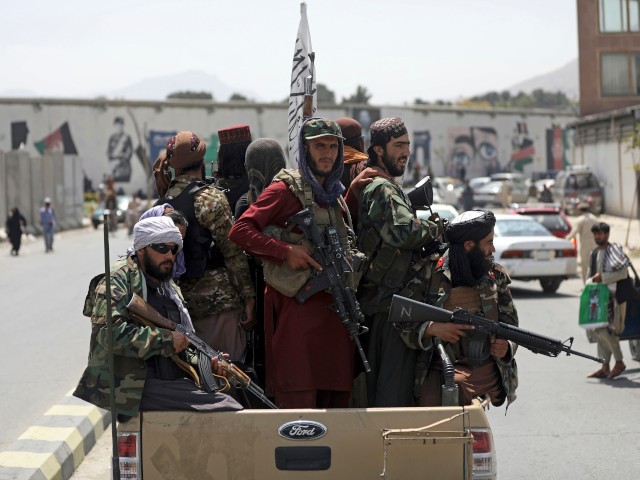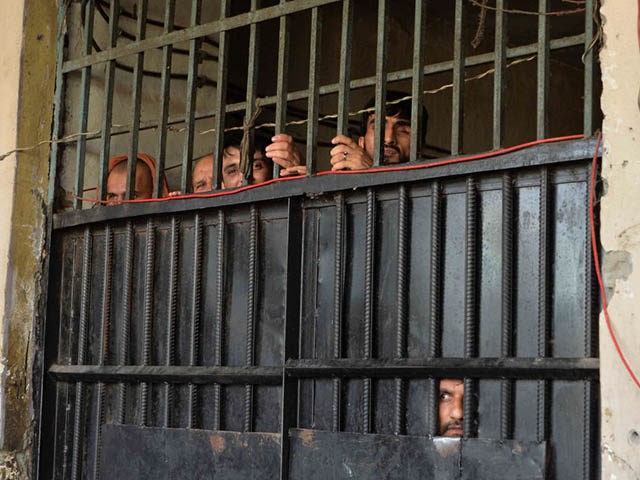Three former Afghan government and security officials from Laghman and Ghazni provinces have gone missing after the Taliban terror group arrested them Sunday, relatives of the men told Tolo News on Friday.
“Abdul Wali Wahidzai, the former governor of Laghman, and Lotfullah Kamram, the former police chief of the province, surrendered to the Taliban five days ago but they are still in Taliban custody,” the Afghan news site reported on August 19.
“The Taliban released all government officials, but Lotfullah Kamran was not released,” a relative of Kamran named Abdul Ghani told Tolo News.
Mohammad Hashem Ghalji, a former police chief from the city of Ghazni, the capital of Ghazni province, “is also missing,” according to Ghalji’s son.
“Release my father, because you have announced a general amnesty,” Ghalji’s son, who shares the same name as his father, urged the Taliban through Tolo News.

Taliban fighters stand along the roadside in Ghazni on August 12, 2021, as Taliban move closer to Afghan capital after taking Ghazni city. (Photo by – / AFP) (Photo by -/AFP via Getty Images)
Ghalji referred to remarks by Taliban spokesman Zabihullah Mujahid on August 17 in which he claimed the group would “pardon” all Afghans who worked for the now-deposed Afghan government, which itself was established and supported by the U.S. government.
“All those in the opposite side are pardoned from A to Z,” Mujahid told reporters at a press conference in Kabul on Tuesday.
“We will not seek revenge,” he added.
“The Taliban earlier insisted that their fighters would not enter people’s homes or interfere with businesses and said they would offer ‘amnesty’ to those who worked with the Afghan government or foreign forces,” the Associated Press recalled on August 15.

Taliban fighters patrol in Kabul, Afghanistan, Thursday, Aug. 19, 2021. The Taliban celebrated Afghanistan’s Independence Day on Thursday by declaring they beat the United States, but challenges to their rule ranging from running a country severely short on cash and bureaucrats to potentially facing an armed opposition began to emerge. (AP Photo/Rahmat Gul)
Taliban terrorists allegedly killed a 63-year-old man trying to escape the terror group’s insurgency in Ghazni province last month, Amnesty International reported Friday. The human rights organization said the Taliban targeted the man for deadly retribution after suspecting him of “working for the Afghan government.”
Taliban fighters sweeping across the rural Ghazni district of Malistan from July 4-6 “severely beat” Jaffar Rahimi and “accused” him of “working for the Afghan government, after cash was found in his pocket,” eyewitnesses told Amnesty International.
“The Taliban strangled him to death with his own scarf. Three people involved in the burial of Rahimi said that his body was covered in bruises, and that the muscles of his arms had been carved off,” according to the harrowing account.
Amnesty International called on Friday for “the protection of thousands of Afghans at serious risk of Taliban reprisals, from academics and journalists to civil society activists and women human rights defenders.”
The Taliban seized control of Kabul, Afghanistan’s national capital and seat of government, on August 15. The takeover marked the culmination of a months-long military campaign that saw the terror group, which previously ruled Afghanistan from 1996-2001, reconquer the country in record time. The fall of Kabul symbolizes the final chapter of America’s longest war, which began in Afghanistan in 2001 after the U.S. ousted the Taliban from the country’s government. The U.S. and NATO-allied forces have been slowly recalling their troops from Afghanistan over the past few months as part of ongoing efforts to end the war.

COMMENTS
Please let us know if you're having issues with commenting.